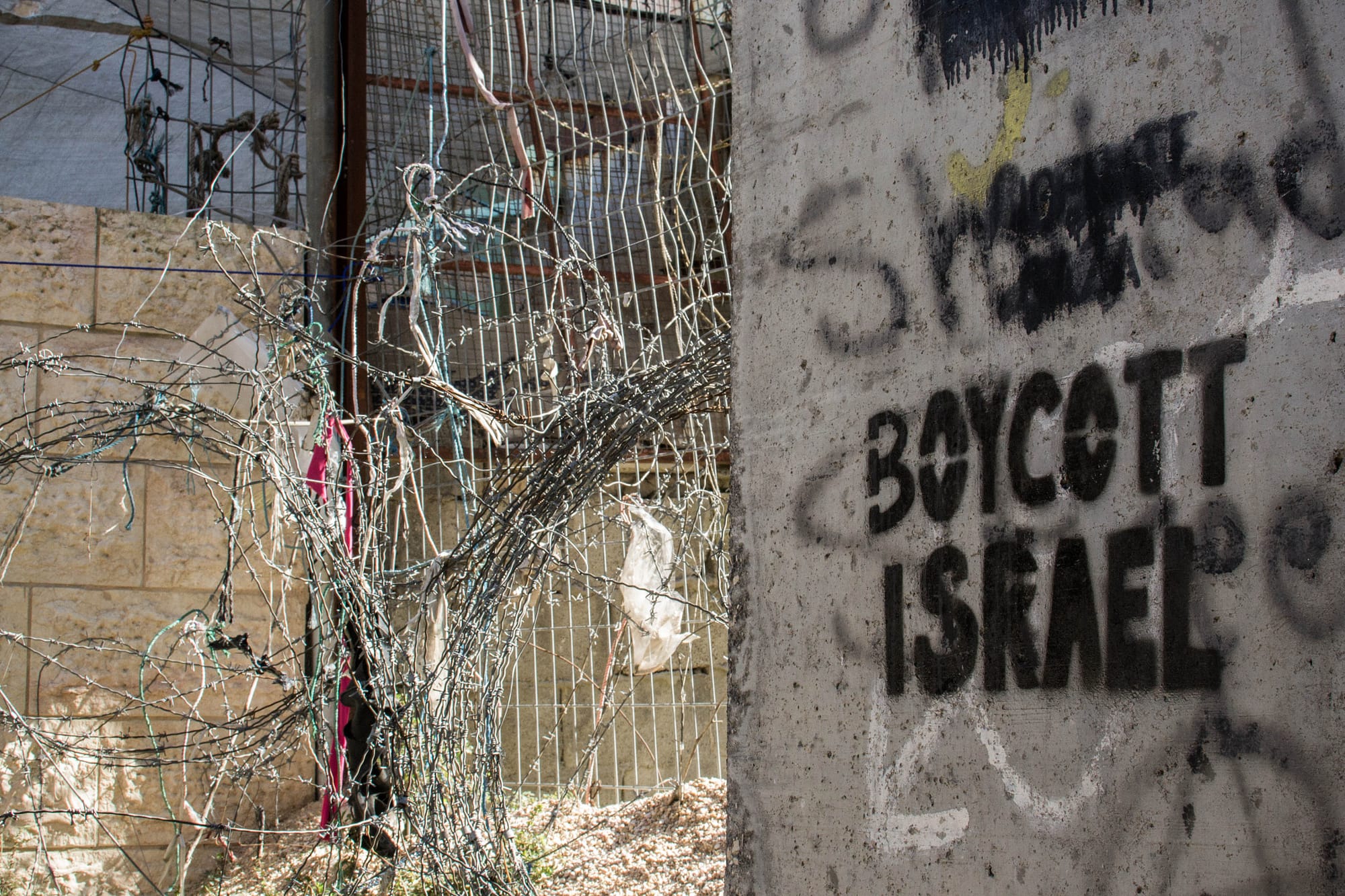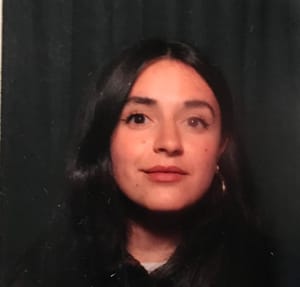
What’s the right way to protest a genocide? Interrupting political speeches is immature. Targeting arms factories is intimidation. Petitioning judges is absurd, marching hateful. Even sharing images is discrimination.
In this context, any criticism made of new protests – like the cultural boycott announced this week – doesn’t seem worth acknowledging, much less arguing with. But since it’s always the exaggerators who try to claim argument, the “exchange of ideas”, as their mantle, and since that’s true in this case more than others, argue I will.
The open letter announcing the boycott was published on Monday by LitHub. Its signatories, which include Sally Rooney, Judith Butler, China Miéville and Yasmin Alibhai-Brown, criticised “Israeli cultural institutions, often working directly with the state” for their “integral role” in “obfuscating, disguising and artwashing the dispossession and oppression of millions of Palestinians for decades.” Their resolution:
[W]e will not work with Israeli cultural institutions that are complicit or have remained silent observers of the overwhelming oppression of Palestinians. We will not cooperate with Israeli institutions including publishers, festivals, literary agencies and publications that:
A) Are complicit in violating Palestinian rights, including through discriminatory policies and practices or by whitewashing and justifying Israel’s occupation, apartheid or genocide, or
B) Have never publicly recognized the inalienable rights of the Palestinian people as enshrined in international law.
The critique came the next day in the form of another letter, this one signed by Howard Jacobson, Lee Child, Simon Schama, Ozzy Osbourne and Scooter Braun, among others, and published by Creative Community for Peace (CCFP). CCFP, which was unfamiliar to me before this week, describes itself as an “apolitical organisation that strives to provide balance to the discourse regarding the Israeli/Palestinian conflict”. Have a look at its “Celebrity and Artist Quotes” webpage and decide for yourself if that's true.
The second letter makes no explicit mention of the first. But it condemns the targeting of “Israeli and Jewish writers, publishers, authors, book festivals and literary agencies, along with those who support, work with, or platform them”. The accusation of antisemitism – implicit in these words and explicit in an accompanying quote from philosopher Bernard Henri-Lévy – is sharpened by references to book-burning from CCFP’s Executive Director. Other quotes expand on signatories’ reasoning, bringing in that free speech theme: for Jacobson, art is “the antithesis of a political party”, a meeting place for ideas rather than an echo chamber, so cultural boycotts as a whole are invalid.
On the first point: the boycott letter is signed by various prominent Jewish figures including Naomi Klein, Jacqueline Rose, Miriam Margolyes and Michael Rosen. Its focus is on Israel, not Jews. (The claim that they’re the same thing always strikes me as contrary to Zionism’s principle that Israel should be not just a collection of co-religionists but a modern nation state.)
Even then, Israeli nationality – much less Jewish identity – is not the threshold at which the boycott starts. It starts at the point institutions engage in a defensive or obfuscatory relationship with a government killing civilians en masse. Yes, it scrutinises the behaviour of Israeli institutions specifically; changing Israeli policy is the goal. When people try to change the British political landscape they make demands of British ones.
As I understand it, the boycott is meant to cause one of two things: widespread cultural criticism of Israeli government policy at an institutional level, or, if that criticism doesn't materialise, the deprivation of Israelis of culture available elsewhere, with resulting pressure building from below. The second of those developments would be a product of the actions of those institutions as well as those of the boycotters.
That’s key: the impetus is on organisations, probably businesses and charities. They will inevitably have some kind of relationship to their political context, critical or otherwise. In political circumstances so extreme it is impossible for them not to. Violence on this scale touches everything; to be unaffected is itself a political choice, and one borne of inequality. Insensitivity to ethnic cleansing and apartheid is not an option for its victims.
There are concerns for the safety of outspoken dissenters in Israel right now, of course. For an industry that deals in publication, though, what stance is there other than a public one? The boycott does not demand condemnation of the Israeli government (in the way so many Palestinians were called on to condemn Hamas following 7 October), only acknowledgement of the rights of Palestinian people. The threshold doesn’t really seem that high.
That brings us to the argument about the “meeting place of ideas”. It’s hard to imagine meaningful dialogue happening within an institution unwilling to start from this common ground.
That isn’t to say that the representatives of those bodies shouldn’t be argued with. CCFP and I agree, at least, to the extent that they claim to believe everyone should be argued with, a feeling bolstered in my case by Amia Srinivasan’s writing on the free speech culture wars. But it’s to say that literary festivals are not the right place in which to do it. Conversations in which one side denies the other’s basic humanity seems, to me, to have left the cultural realm and entered, firmly, the political and legal. The alternative gives the perpetrators of violence an intellectual credit they don't seem to want. 40,000 Gazans were not invited to debate their existence; they were crushed.
There have, I think, been plenty of shortsighted cultural judgements in the last year, including a much-publicised instance the CCFP letter refers to in which a bookshop event was cancelled because the interviewer was deemed a Zionist. But neither “Zionist” nor “Zionism” appear anywhere in the boycott’s terms, and the cancellation as an example is easily countered with several from the other side. The distinction this boycott takes care to make – and its critics ignore – is that it's not about what individuals think. It’s about what organisations do.
Writers are also workers. These institutions are their workplaces. Their labour and its products are political tools, for them and for those who distribute and otherwise use them. To argue, as some people have, that those involved in the boycott are forfeiting the potential of their words to change minds in Israel is to ignore the fact that culture is already big business there – access to which helps Israel frame itself as an outpost of “western” ideals and obscure its crimes. Things can’t stay the same indefinitely on the basis that they might, one day, change. Stronger means need to be sought.
To clarify: I don’t believe culture is solely a business. I do believe in its power to affect change. That’s why the elevation of the written word as a sacred thing above the actual change it can help to bring about makes me sceptical. The argument that art should be warm and receptive to all politics in this case looks suspiciously like the argument that it should have none. Can artistic entities not continue, as Jacobson writes, to “explore, discover, differ, question and surprise” while standing against an occupied people’s right not to be blown to pieces? At its most basic, is art not a declaration of life?
The silence we should fear most has pervaded not our art but our politics. While the conversation over cultural boycotts went on this week, Foreign Secretary David Lammy was claiming that calling the deaths in Gaza “genocide” undermines the seriousness of the term. I won’t get back into the argument over the word here, but the fact that it remains unspeakable for ministers, and that arms sales and diplomatic cover continues in the face of all the evidence, shows just how limited that conversation is.
For critics claiming that Jews and Israelis are again coming in for unique victimisation, it’s worth remembering that cultural boycotts have a history. Playwrights, actors, philosophers, musicians and more all boycotted segregated South Africa. Protesters targeted sports tours by all-white teams. These contributions did not win the fight against apartheid alone, but they helped: pressure did build below, and eventually the regime fell. If the inconveniences suffered in the meantime seemed unfair – if the loss of pop concerts and translations of new novels seems unfair – consider the unfairness of life in the Bantustans, death under Gaza’s rubble.
Cultural boycotts are imperfect. In an ideal world it would be possible to target rogue governments without impacting those who live under and may well hate them. But when our only route to doing that – petitioning our own government to intervene – is foreclosed, we have to look at alternatives. And when every one of those alternatives is called racist or repressive, the only appropriate response is this: we do what we can, what we must. ▼
Francesca Newton is an editor at Vashti and at Tribune.
Author

Francesca Newton is assistant editor at Tribune and an editor at Vashti. She currently lives in Melbourne.
Sign up for The Pickle and New, From Vashti.
Stay up to date with Vashti.



